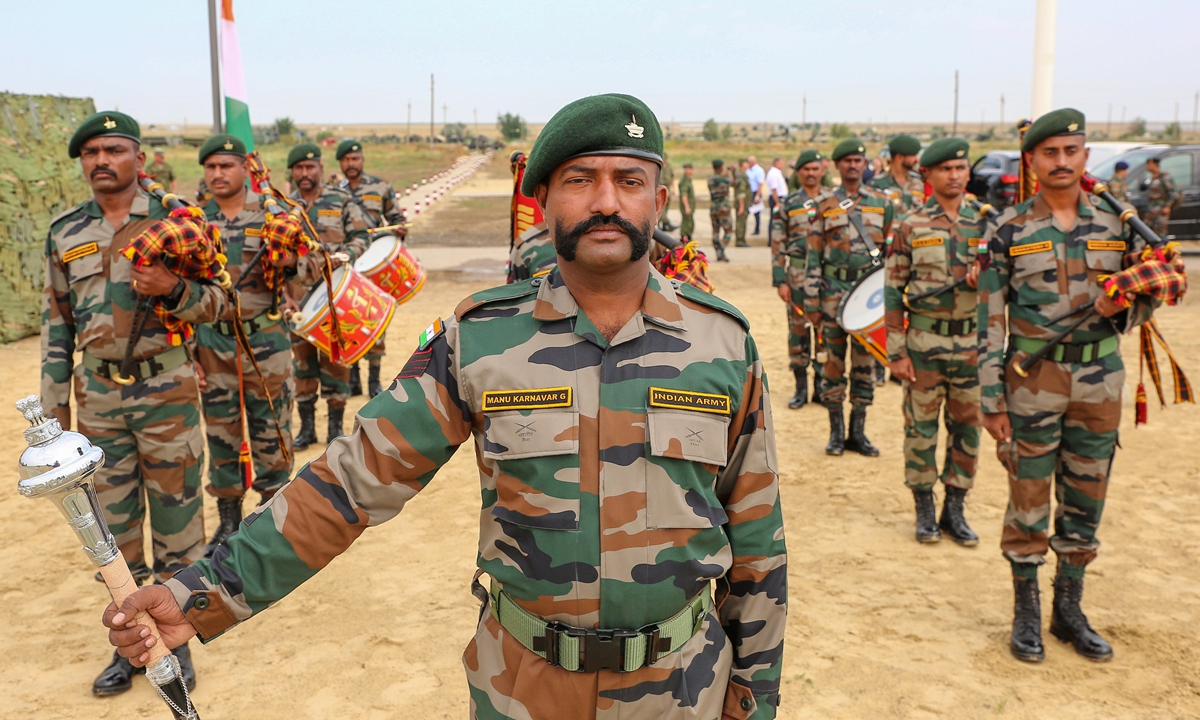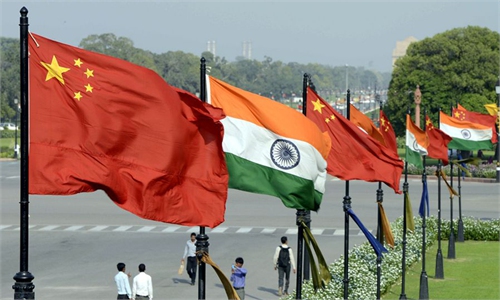India’s military reform aims high, but faces many obstacles

India's military conducts joint military exercises with Russia's military in August 2021. Photo: VCG
According to Bloomberg, India is about to overhaul its military after a long delay.This overhaul will be an unprecedented and radical reform of the Indian military. Through this reform, India wants to emulate the top three militaries in the world, the US, China and Russia, to create a modern force that matches its national status and supports its aspiration to be a great power.
The Bloomberg report also noted that a more unified Indian military would make it easier to link up with the US and its allies' forces if a conflict occurs. "A key aspect of the AUKUS partnership announced last week by the US, Australia and UK involves interoperability in a range of defense areas, something India currently lacks within its own forces," according to the article.
Even though the US and its partners in the Indo-Pacific are wary of China to different degrees, their aim of containing and guarding against it is the same. So, it is expected that these countries will further strengthen their military interoperability, particularly in dealing with the alleged maritime threat that China poses.
However, India now faces many obstacles in its push to strengthen military ties with the West. For example, India's current weapons are mainly from Russia and may be incompatible with equipment from other countries. In addition, despite close military cooperation with Washington over the years, New Delhi has always been alert to Washington's deep involvement in the Indian military. India still wants to be a more equal partner with the US, while the US-led alliance or partnership will always be based on US standards and influences. India as a major power is surely unwilling to be controlled by others.
The close military ties between India and the West are not likely to cause a great shock to the regional situation in the short term. However, if such a trend develops, it may negatively impact the region by stimulating countries like Pakistan to strengthen their military capacity to counter India, which could intensify a regional arms race.
According to Bloomberg, India's military reform will create at least four theater commands: one in the west focused on Pakistan, another in the east facing China, a maritime command for the Indian Ocean region, and an air defense command. The establishment of the first two commands indicates that New Delhi continues to view Beijing and Islamabad in its defense policy as real and direct threats. In particular, India's plan to establish an eastern theater command in light of the ongoing downturn in China-India relations proves its unabated wariness of the modernization of China's military forces. Moreover, India shows its desire to exert greater influence in the Indian Ocean through the creation of a maritime command on the region.
The military reform will inevitably involve the division of the military's theater of operations, the movement of military equipment and the change of garrison personnel. But this might send a wrong signal the neighbors, including China, and could even lead to a strategic miscalculation. The mobilization of Indian troops could be misunderstood by its neighbors as a move from New Delhi that is strengthening its military deployment. Therefore, at a time when strategic mutual trust between India and its neighbors is so fragile, this military reform may damage the relationship between New Delhi and its neighbors regardless of the intentions.
Nevertheless, New Delhi will find it difficult to conduct its military reform. It will encounter some barriers domestically. This includes a weakened Indian economy due to the COVID-19 epidemic, a major factor to implement any type of reform. In addition, India's land, maritime, and air forces are independent of each other and such a division on its military culture is difficult to eliminate.
There is no doubt that a reform of any military power is a great improvement or even a subversive demolishment of the old system. India's reform process has only just started and it already faces many challenges and fears that New Delhi will face more tasks in the overhaul process. India's military reform in a short period still seems relatively radical.
The author is the director of the research department of the National Strategy Institute at Tsinghua University. opinion@globaltimes.com.cn

